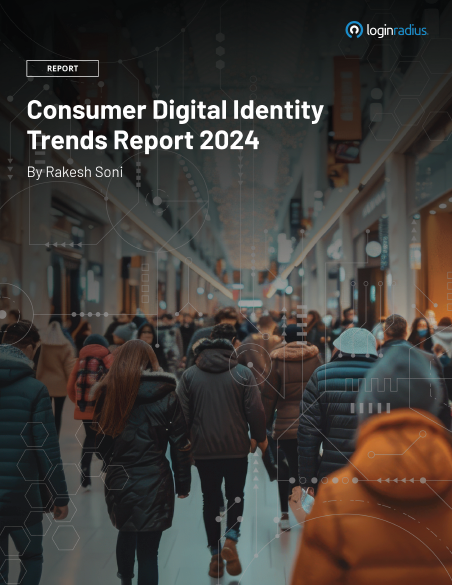Introduction
For decades, identity management solutions have been navigating enterprises' digital transformation journeys and becoming integral to any online platform.
However, identity management isn’t used to secure digital identities but to create a delightful and seamless user experience that enhances user engagement.
Whether we talk about social login, passwordless login, or single sign-on, identity management has offered endless possibilities to businesses concerning user experience and security.
With a cookieless authentication, enterprises can leverage the true potential of a CIAM solution in marketing their products and services without compromising user experience.
Let’s uncover the aspects of incorporating a cookieless authentication into your business platform and learn why businesses quickly need to put their best foot forward in adopting a cookieless authentication platform.
What is a Cookieless Authentication? Why it’s Crucial Today?
Cookieless authentication, also known as token-based authentication, is a technique that leverages JSON web tokens (JWT) instead of cookies to authenticate a user.
Cookieless uses a protocol that creates encrypted security tokens that allow the user to verify their identity. The users receive a unique access token to perform the authentication.
The conventional cookie-based authentication requires the server to perform an authentication lookup every time the user requests a page. With cookieless authentication, enterprises can eliminate the round-trips with tokens.
How Does Cookieless Authentication Work?
In cookieless authentication, the token contains information about user identities and transmits it securely between the server and client. The entire cookieless authentication works in the following manner:
- The user logs into the service by providing their login credentials. It issues an access request from the client-side by sending the credential and API key (public key) to the application server.
- The server verifies the login credentials that checks the password entered against the username. Once approved, the server will generate a unique session token that will help authorize subsequent actions.
- This access token is sent back to the client via URL query strings, post request body, or other means. The server-generated signed authentication token gets assigned with an expiration time.
- The token gets transmitted back to the user's browser. On every subsequent request to the application server or future website visits, the access token gets added to the authorization header and the public key. If there is a match between the application server against the private key, the user can proceed. A new token gets generated as an authentication request.
How do Marketers Benefit from Cookieless Authentication?
Though marketers have been leveraging cookies for decades to aid their marketing efforts, businesses now have to think out of the box to ensure they engage their potential customers more interactively.
However, a cookieless future also paves the way for marketers to build a robust foundation for digitally promoting their products and services since cookies present endless challenges.
Cookies aren’t transparent, so users don’t know which information is being collected or shared about them and how it can impact their privacy and security.
Moreover, cookies always represent devices and not humans, leading to instances where information can show duplicate impressions.
Also, users always demand transparency regarding how websites and applications collect and use their information. Hence, with a cookieless authentication mechanism, users would choose to consent to the information collection along with the advertising needs to ensure adequate security that further builds brand trust.
Once trust is established in users, businesses can later ask clients about their preferences and interests, which can help create winning strategies.
Also Read: Managing Privacy and Compliance in a Cookieless World
Other Benefits of Going Cookieless
- Scalable and efficient: The tokens remain stored on the user's end in cookieless authentication. The server only needs to sign the authentication token once on successful login. That makes the entire technique scalable and allows maintaining more users on an application at once without any hassle.
- Robust security: Since cookieless authentication leverages tokens like JWT (stateless), only a private key (used to create the authentication token) can validate it when received at the server-side.
- Seamless across devices: Cookieless authentication works well with all native applications. Tokens are much easier to implement on iOS, Android, IoT devices, and distributed systems, making the authentication system seamless.
- Expiration time: Usually, tokens get generated with an expiration time, after which they become invalid. Then a new token needs to be obtained for reauthentication. If a token gets leaked, the potential damage becomes much smaller due to its short lifespan.
The Bottom Line
Undoubtedly, cookies have provided endless possibilities to marketers to date. However, the future belongs to cookieless since global brands and most web browsers now support a cookieless landscape.
Marketers need to understand that adopting cutting-edge technology in the form of cookieless authentication may initially feel like a tedious process. However, it helps them unwind an array of opportunities to engage potential customers in the long run.
Businesses can choose a reliable CIAM platform that allows them to go cookieless without worrying about overall data security, compliance, and privacy.













